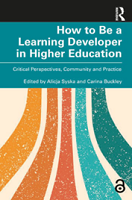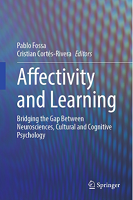Ukazał się nowy numer e-mentora. Zachęcamy do lektury.

Dear "e-mentor" readers,
I am pleased to present you the newest collection of articles presenting various studies on modern trends in education and business from the perspective of different countries. Readers primarily interested in pedagogy can reflect on the problem of improving teachers' classroom assessment practices using data collected in Ghana and explore the idea of micro-credentials and its application at a Slovenian university.
The authors of two other articles focus on the topics that can attract readers from two fields: business and education. The first article is dedicated to the problem of integrated management system at higher education institutions, including in particular quality MS (compliant with ISO 9001), environmental MS (ISO 14001) and energy MS (ISO 50001). The second text deals with the issue of social responsibility at a university from the point of view of Bulgarian and French students'.
The part dedicated to new trends in business begins with a conceptual article including a comparative analysis of selected concepts of management and quality sciences with the field of art therapy. Numerous areas of overlap between art therapy and management are highlighted. In this part, readers can also find out about empowerment and the quality of superior-subordinate relationships in the international business environment, bibliometric analysis of categories of sustainable development, and financial predictors of corporate insolvency.
więcej »
Zapraszamy do śledzenia naszej strony w serwisie LinkedIn!

„Działania na rzecz zwiększenia rozpoznawalności czasopisma „e-mentor” w międzynarodowym środowisku naukowym” – projekt finansowany na podstawie umowy nr RCN/SP/0361/2021/1 ze środków Ministerstwa Edukacji i Nauki przyznanych w ramach programu „Rozwój czasopism naukowych” w wysokości 54 tysięcy złotych.
Polecamy w nim szczególnie:
Jan Fazlagić, Art therapy from the perspective of management and quality sciences
Art therapy is a field of activity with both practical and theoretical foundations although the latter are not precisely defined. Management and quality sciences, as well as economics, include management in the healthcare sector as one of their areas of interest. Despite a wealth of literature on the subject of management in healthcare, no in-depth research on art therapy as a specific form of delivery of the therapeutic process has been conducted so far. The aim of this article is to identify potential areas for further interdisciplinary research linking the field of management and quality with health sciences and education sciences (bearing in mind that art therapy is not a separate, autonomous scientific discipline).
czytaj dalej »
In this paper, the author analysed the responses to a questionnaire about micro-credentials of several groups of students studying at the Faculty of Management, University of Primorska in Slovenia in order to see how familiar they were with the concept, their perceived value of micro-credentials and their willingness to participate in such short courses. The study showed, first, that only a small number of students were well-acquainted with the concept; second, that students would be willing to attend such courses; third, that there were substantial differences between different groups of students regarding what they thought they needed the most. Based on the research, the author saw the potential of micro-credentials not only for bridging the skills gap and catering for labour market need, but also for acquiring new skills, upskilling and – in the case of Slovenian undergraduate and postgraduate students – for timely completion of their studies.
czytaj dalej »
The aim of this paper is to identify and explore nature of superior-subordinate relationship and the different uses of empowerment in organizations where employees and managers are of different nationalities. The hypothesis formulated in the study was that a correct relationship fosters empowerment, but this is conditioned by whether or not the work environment is an international one. The research was conducted using the CAWI technique on a non-randomly selected sample of 277 respondents, and confirms a positive correlation between empowerment and the quality of relationships, and also between empowerment and the type of relationship. Moreover, the perception of relationships is modified when an international working environment is considered. In all models, the formal relationship proves to be an irrelevant factor in the use of empowerment. As far as the origin of the superior is concerned, when the superior is a foreigner, the quality, and not the type of the relationship, is the crucial factor. However, an informal relationship becomes important when there are no foreigners. This may cause certain threats in a situation where the company expands internationally.
czytaj dalej »


